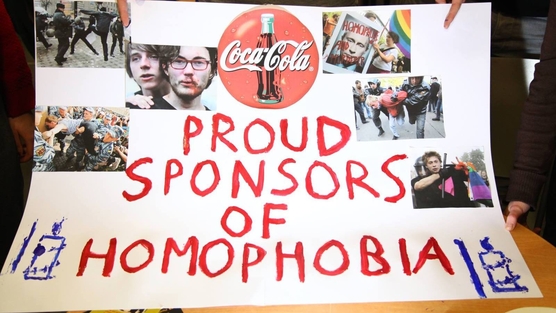The Whole Spectrum of LGBT Issues
February 5, 2014 in Blog, information, main by Ellen MacAskill
What a great week for Scotland.
Even though it has been imminent been for some time now I cannot but be relieved, excited and proud that the last barrier has been broken. One of society’s most treasured institutions is becoming egalitarian. Finally. And with a record of 108 to 18 voting in favour, the decision was easy, without the MSPs being dictated by party whips. Scotland is the 17th country globally to fully legislate same-sex marriage, following England and Wales last year.
Also exciting is the amendment made to the first draft of the bill concerning trans couples. Last semester we had guest speaker Nathan Gale visit us from the Scottish Transgender Alliance. He spoke about how the proposed ‘spousal veto’ would stop people from having their gender confirmed off their own backs as a partner would have to confirm it for them. This breach of our basic autonomy was removed from the bill, making the bill fairer for the Ts as well as the LGBs.
You may also have noticed that the university are flying the rainbow flag on campus for the UK LGBT History Month. On Saturday GU LGBTQ+ celebrate this wonderful use for February with Queerfest. Check out their Facebook page for finalised details of the event and the afterparty.
Over in Russia, the future does not look so bright. The Sochi Winter Olympics kick off on Friday and activists and campaigners are being dealt with unfairly so Putin can avoid a scene. Pavel Lebedev was detained during the Olympic Torch relay for waving a rainbow flag. He is one of many who will be victimised for taking a stand. Last year legislation was passed which makes the promotion of ‘propaganda of non-traditional sexual relations amongst minors’ punishable by law (Is that what they call it these days?). Homophobia is being further institutionalised when the opposite should have happened years ago.
A certain tension is hanging around the Winter Olympics as both sides of the ethical dispute wait to see what will unfold. We can only hope that Putin’s attitude can be recognised as an example of how not to use power.
Speaking of power: the internet. Isn’t it great sometimes? We love a petition here at Amnesty so naturally, we have jumped aboard the Change.org band-wagon. Following Coca Cola’s refusal to withdraw sponsorship from the Sochi games, despite much lobbying and deliberation, Dom conceived an idea for a petition to encourage them to symbolically repent. His brainchild asks Coca Cola to put a rainbow on their cans to represent the global LGBT community which they have ignored in their alliance with the Games.
The ‘Put a Rainbow On It’ petition has been a success, gaining more than 8000 signatures in a week. At the time of writing, the figure stands at 8,284. If your signature is not already on it, please add it and help us to reach 10,000. Below is a link (warning: refreshing the screen to watch the number grow can become addictive).
http://www.change.org/CokeRainbowFlag Â
We take one step forward and Russia takes two steps back. If we keep up the good work they will catch up one day.
